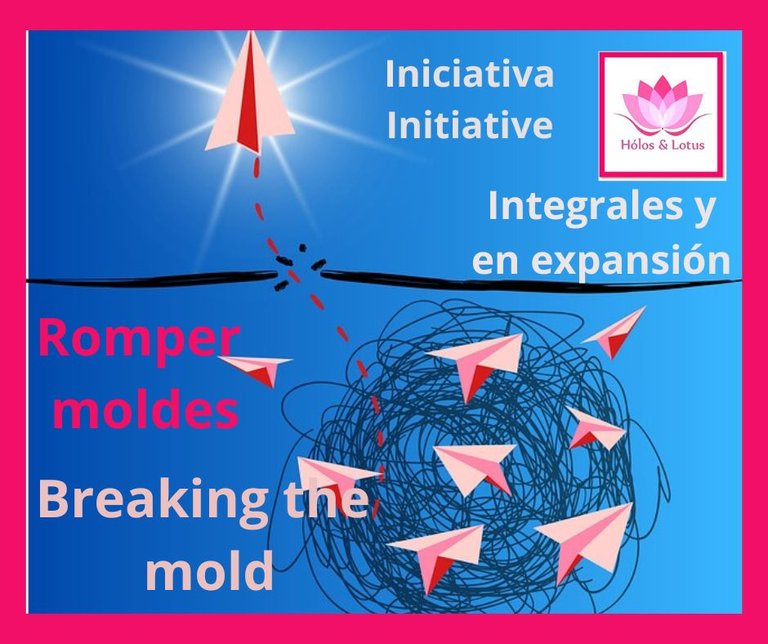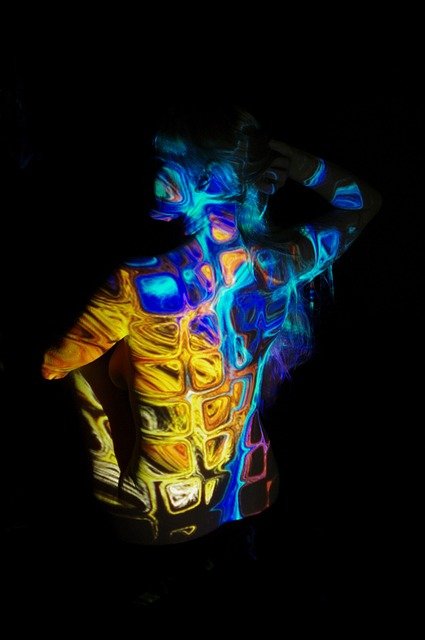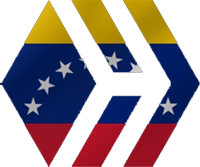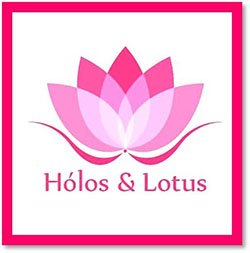
Nos gusta creer que somos independientes, que tomamos decisiones y que dirigimos nuestras vidas por los caminos que deseamos transitar. De muchas maneras es así o más bien hablemos de niveles, en algún nivel esto es así. En el nivel más externo, el de la respuesta-comportamiento que expresamos percibimos que tenemos el control de nuestro accionar, que estamos ejerciendo nuestra voluntad y en línea general sentimos que ponemos en práctica lo que llamamos el libre albedrío.
Sin embargo, hoy en día sabemos que nuestras conductas responden a un sinfín de conocimientos- aprendizajes que vamos acumulando en la experiencia de vida, que se inicia desde los primeros meses de gestación y continúa a lo largo de la existencia. Es un aprendizaje que nos llega desde lo materno, la familia, la escuela, los amigos y todo lo que nos rodea.
Con ello vamos formando un cuerpo compacto, interrelacionado que da origen a las creencias y todo aquello que aceptamos como válido, verdadero, real y también a lo que rechazamos por considerarlo falso, prejuicioso, inaceptable. Digamos que este es el nivel intermedio, un nivel donde filtramos, la mayoría de las veces de manera inconsciente, con lo que nos quedamos y con qué no, con ello normalizamos nuestro accionar.
Ahora bien estas fuentes de conocimientos institucionales: familia, escuela, religión también responden a un modelo o patrón que muchas veces nos resultan invisibles, difícil de comprender y descifrar, pero que está allí y desde el cual actuamos, son los paradigmas, ellos nos dan una estructura de pensamientos, desde ellos interpretamos la realidad y accionamos, son como hilos invisibles que nos mueven, el ejemplo más visual que me llega nos la da el cine con la película de ciencia ficción “La Matrix”.
Solo que en este caso no es ficción, pero al igual que en la película, los paradigmas podemos romperlos y cambiarlos por unos que nos den mayores satisfacciones y nos acerquen a lo que realmente queremos vivir.

Para ilustrar cómo funcionan los paradigmas tenía una experiencia cercana que contarles, pero anoche, leyendo los post de la comunidad me encontré con este del amigo @germanandradeg Felicidad - Vivir sin contar los Años [Also in English] y contando en que el amigo me disculpe el abuso, lo tomaré como ejemplo.
Nos lo imponen desde pequeños, que sí para ir a la guardería, al colegio, la universidad, para sacar la licencia de conducir, para casarte y pare de contar. En mi caso, cuando cumplí los diez años, me dieron la trágica noticia de que iba a entrar en la adolescencia y que como el mayor de mis hermanos debía asumir responsabilidades para ayudarlos, cuidarlos, dar el ejemplo… Asumí el decreto, pero allí comencé a saber lo que era la infelicidad…
En este corto y valioso texto encontramos las fuentes de nuestros paradigmas, en este caso la familia y la sociedad en general que va asignando roles de sexo o al mejor estilo de remanencia antigua el del primogénito que recibe toda una carga no solicitada y que la asumimos porque es lo que “toca y corresponde”.
Más adelante, en la misma historia de vida encontramos esta joya:
Al graduarme y obtener un excelente trabajo bien remunerado me largué de casa… Por arte de magia, el peso de las responsabilidades por ser el hermano mayor fue liberado y eso se notó en mi apariencia. Aquel niño con actitudes de viejito desapareció para dar entrada al loco feliz.
He aquí la ruptura de paradigma, que solo es posible que ocurra cuando logramos identificar que es lo que nos causa infelicidad, molestia, aquello que representa una carga que no nos deja ser quien queremos ser y son las experiencias, los contextos nuevos y distintos los que nos abren a estas nuevas posibilidades y tomamos la oportunidad que se nos brinda.
Sin caer en la irresponsabilidad y en la inmadurez, adopté una actitud ante la vida de forma alegre…Hay quienes dicen que me unto aceite para que todo me resbale. Es una forma que escogí para vivir, para sentirme bien y estar bien con mi yo interno, mi Dios.
Aquí la adopción de un nuevo paradigma, que no deja de ser un molde al que respondemos desde la matriz de su fundamento, pero es el que escogimos, el que consideramos que nos aproxima a quienes queremos ser y que nos produce satisfacción y bienestar.
Y de esto se trata el ejercicio que te propongo hoy:
¿Identificas en tu vida moldes, patrones, paradigmas?
¿Has roto, cambiado o transformado alguno?
¿Cuál ha sido el nuevo paradigma adoptado?
Por favor, toma estas preguntas como una guía para desarrollar tu post no como un cuestionario a responder.
Como siempre, recuerda seguir las normas de la comunidad para publicar: El post debe tener un mínimo de 500 palabras en un idioma (1.000 con la traducción), utiliza la etiqueta #paradigma.
La iniciativa estará vigente desde hoy viernes 22 de marzo hasta el 5 de abril.
Gracias por ser y estar
@damarysvibra

In English

We like to believe that we are independent, that we make decisions and that we direct our lives along the paths we wish to walk. In many ways this is so, or rather let's talk about levels, at some level this is so. At the most external level, that of the response-behavior we express, we perceive that we are in control of our actions, that we are exercising our will and in general we feel that we are putting into practice what we call free will.
However, today we know that our behaviors respond to a myriad of knowledge-learnings that we accumulate in the experience of life, which begins from the first months of gestation and continues throughout our existence. It is a learning that comes to us from our mother, family, school, friends and everything that surrounds us.
With it we form a compact interrelated body that gives rise to beliefs and all that we accept as valid, true, real and also to what we reject as false, prejudiced, unacceptable. Let's say that this is the intermediate level, a level where we filter, most of the times unconsciously, what we keep and what we do not, and with it we normalize our actions.
Now these sources of institutional knowledge: family, school, religion also respond to a model or pattern that many times are invisible to us, difficult to understand and decipher but that is there and from which we act, are the paradigms, they give us a structure of thoughts, from them we interpret reality and act, they are like invisible threads that move us, the most visual example that comes to me is given to us by the cinema with the science fiction movie "The Matrix".
Only in this case it is not fiction, but as in the movie, we can break the paradigms and change them for ones that give us greater satisfaction and bring us closer to what we really want to live.

To illustrate how paradigms work I had a close experience to tell you but last night, reading the community's posts I found this one from my friend @germanandradeg Felicidad - Vivir sin contar los Años [Also en Español] and counting on my friend to forgive me for the abuse, I will take it as an example.
It is imposed on us from an early age, yes, to go to kindergarten, to school, to university, to get a driver's license, to get married, and so on. In my case, when I was ten years old, I was given the tragic news that I was going to enter adolescence and that as the oldest of my siblings I had to assume responsibilities to help them, to take care of them, to set an example... I accepted the decree, but there I began to know what unhappiness was...
In this short and valuable text we find the sources of our paradigms, in this case the family and society in general that assigns sex roles or in the best style of ancient remnant that of the firstborn who receives a whole unsolicited burden and that we assume because it is what "touches and corresponds".
Later on, in the same life story we found this gem:
Upon graduating and getting an excellent well-paying job I left home...Magically, the weight of the responsibilities of being the older sibling was released and that showed in my appearance. That little boy with the attitude of an old man disappeared to make way for the happy crazy man.
This is the paradigm break, which can only happen when we are able to identify what causes us unhappiness, discomfort, what represents a burden that does not let us be who we want to be, and it is the experiences, the new and different contexts that open us to these new possibilities and we take the opportunity that is given to us.
Without falling into irresponsibility and immaturity, I adopted a joyful attitude towards life... Some people say that I rub oil on myself so that everything slides off me. It is a way that I chose to live, to feel good and to be well with my inner self, my God.
Here is the adoption of a new paradigm, which is still a mold to which we respond from the matrix of its foundation, but it is the one we choose the one we consider that brings us closer to who we want to be and that produces satisfaction and well-being.
And this is what the exercise I propose today is all about:
Do you identify in your life molds, patterns, paradigms?
Have you broken, changed or transformed any of them?
What has been the new paradigm adopted?
Please take these questions as a guide to develop your post, not as a questionnaire to be answered.
As always, remember to follow the rules of the community to publish: The post must have a minimum of 500 words in one language (1,000 with translation)
Use the hashtag #paradigm.
The initiative will run from today, Friday, March 22, through April 5.
Thank you for being
@damarysvibra

Translated with www.DeepL.com/Translator (free version)
Fuente de imágenes: Portada - 1 - 2



MIS REDES SOCIALES





Be Entrepreneur


